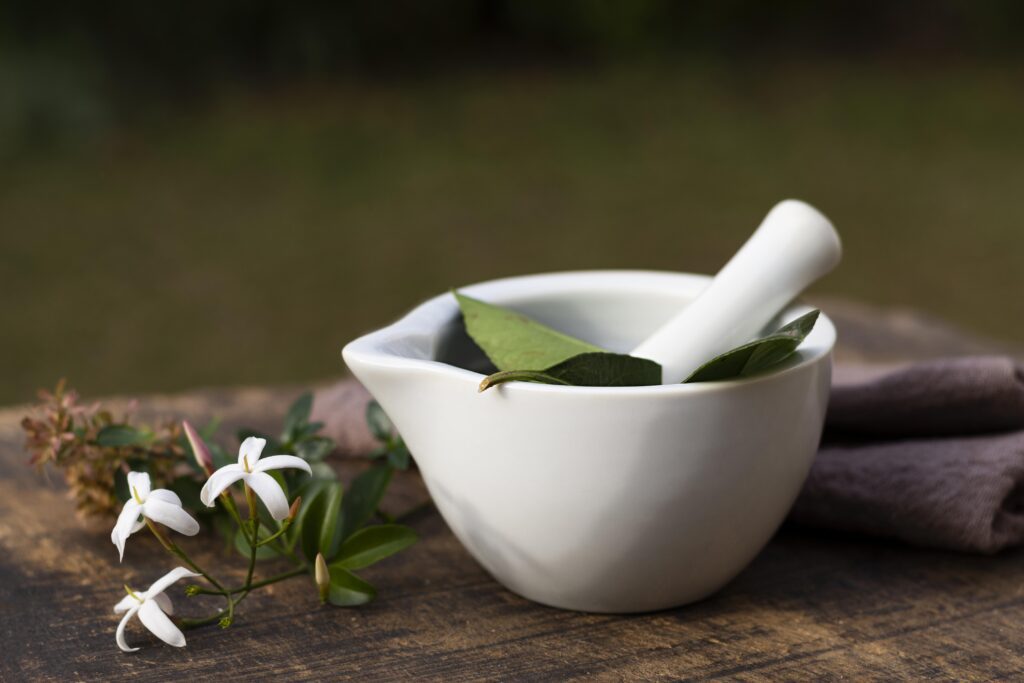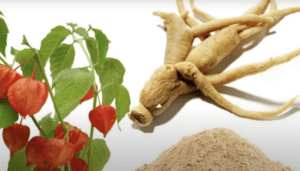Ayurveda is a conventional arrangement of medication that began in old India quite a long time back. The expression “Ayurveda” is gotten from the Sanskrit words “Ayur” (life) and “Veda” (information or science), meaning the study of life. It depends on the conviction that wellbeing and health rely upon a sensitive harmony between the brain, body, and soul, and that this equilibrium is impacted by the singular’s current circumstance, way of life, and dietary propensities.

Ayurveda has been utilized for a really long time to deal with an extensive variety of medical issue, including stomach related messes, skin issues, joint pain, respiratory issues, and stress-related messes, its viability in treating explicit sicknesses might differ from one individual to another. Some people may find relief and improvement in their symptoms through Ayurvedic practices, while others may require additional medical interventions.Ayurvedic treatments can help prevent and alleviate various health issues.
Ayurveda treatment starts with an internal purification process, followed by a special diet, herbal remedies, massage therapy, yoga, and meditation.It’s critical to comprehend that Ayurveda approaches wellbeing and infection uniquely in contrast to current Western medication. While Western medication frequently centers around treating side effects or explicit infections with normalized medicines, Ayurveda considers every individual extraordinary and looks to address the main driver of ailment by reestablishing harmony to the body, psyche, and soul.
Ayurvedic medicines might incorporate natural cures, dietary alterations, way of life changes, detoxification rehearses, yoga, contemplation, and back rub treatments. These methodologies are custom-made to the singular’s constitution (dosha), explicit ailment, and by and large prosperity.
Key Principles That Outline How Ayurveda Aims To Cure Diseases
-
Balancing Doshas:
Ayurveda sees wellbeing as a condition of equilibrium among the three doshas (Vata, Pitta, Kapha), which are organic energies overseeing different physiological and mental capabilities. Illness is viewed as an awkwardness or aggravation in these doshas. Ayurvedic medicines center around reestablishing doshic balance through diet, spices, way of life changes, and treatments custom fitted to the singular’s special constitution (Prakriti) and present status (Vikriti).
-
Detoxification (Panchakarma):
Ayurveda accentuates the expulsion of poisons (ama) from the body to improve in general wellbeing and treat illnesses. Panchakarma treatments, like purifying eating regimens, natural douches (Basti), restorative retching (Vamana), purgation (Virechana), nasal purifying (Nasya), and phlebotomy (Raktamokshana), are used to wipe out poisons and reestablish cell capability.
-
Natural Prescriptions:
Ayurvedic professionals recommend home grown definitions customized to individual irregular characteristics and medical issue. These home grown meds, got from roots, leaves, natural products, and other regular sources, mean to help organ capability, support resistance, lessen irritation, and address explicit sicknesses.
-
Dietary Changes:
Ayurveda puts critical accentuation on diet as a foundation of wellbeing. Dietary suggestions depend on a person’s doshic constitution, season, stomach related limit (agni), and the idea of the infection. Food varieties are sorted as warming (rajasic), cooling (sattvic), or establishing (tamasic), and the eating regimen is changed as needs be to reestablish harmony and advance recuperating.
-
Way of life Changes:
Ayurveda perceives the effect of way of life factors on wellbeing and sickness. Proposals might incorporate embracing day to day schedules (Dinacharya), rehearsing care and stress decrease strategies (Pranayama, Yoga, Contemplation), guaranteeing satisfactory rest, normal activity, and keeping an amicable balance between fun and serious activities.
-
Therapeutic Practices:
Ayurveda includes a scope of remedial modalities to help recuperating, like back rub treatments (Abhyanga), natural steam medicines (Swedana), oil pulling (Gandusha), yoga stances (Asanas), and revival treatments (Rasayana). These practices mean to further develop course, upgrade detoxification, advance unwinding, and reinforce the body-mind association.
-
Holistic Methodology:
Ayurveda sees the person all in all, considering physical, mental, close to home, and profound parts of wellbeing. Treatment plans are customized, tending to the underlying driver of the illness instead of simply overseeing side effects. Accentuation is put on reestablishing concordance and imperativeness to the general existence, cultivating long haul prosperity and sickness counteraction.
Can Ayurveda Cure Arthritis ?

Arthritis is the swelling and tenderness of one or more joints. The main symptoms of arthritis are joint pain and stiffness, which typically worsen with age. The most common types of arthritis are osteoarthritis and rheumatoid arthritis.
Remedies for arthritis
-
Ayurvedic methods:
Long-term remedies for arthritis involve comprehensive treatment approaches that aim to digest toxins (Ama) and reduce Vata. This gradual method includes a series of authentic Ayurvedic treatments to improve digestion, prevent the production of toxins, and achieve long-term results.
-
Fasting:
Fasting, either complete or partial, is highly beneficial for enhancing the digestion of toxins.
-
Light exercises:
Taking part in fitting activities that suit individual capacities supplements the everyday Ayurvedic medicines.
-
Fruit juices rich in Vitamin C:
Consuming fruit juices high in Vitamin C helps improve the effectiveness of Ayurvedic anti-arthritis treatments and reduces skeletal pain.
-
Guggal (Commiphora wightii):
This spice is exceptionally compelling in treating joint pain. The prescribed dose goes from one to three grams, required two times per day with warm water after dinners. Nonetheless, it is essential to take note of that Guggal isn’t appropriate for people with kidney infections or sensitivities.
Read More : https://yogayurvedaa.com/can-ayurveda-cure-arthritis/
Can Ayurveda Cure Fissure ?
A fissure typically refers to a small tear or cut in the lining of the anus. Anal fissures can cause pain, discomfort, and bleeding, especially during bowel movements. Hard stools and straining during bowel movements can put pressure on the anus and cause tears in the delicate lining. Increasing fiber intake and staying hydrated can help soften stools and reduce strain during bowel movements.
Kshar Karma
Kshar Karma is a therapeutic procedure in Ayurveda used primarily for the treatment of anorectal conditions like hemorrhoids (piles), fistula, and fissures. Before undergoing Kshar Karma, the patient’s condition is assessed thoroughly by an Ayurvedic practitioner. This includes examining the severity of the condition, determining the type of anorectal disorder, and assessing the patient’s overall health.
The Kshara, which is a combination of herbal extracts and alkaline substances obtained through a specific process, is applied directly to the affected area. This is usually done under local anesthesia to minimize discomfort. The Kshara, which is a combination of herbal extracts and alkaline substances obtained through a specific process, is applied directly to the affected area. This is usually done under local anesthesia to minimize discomfort. The Kshara, which is a blend of natural concentrates and soluble substances got through a particular cycle, is applied straightforwardly to the impacted area. This is usually done under local anesthesia to minimize discomfort.
Can a nerve damage be treatable with Ayurveda?
- Peripheral Neuropathy
- Autonomic Neuropathy
- Cranial Neuropathy
- Central Nervous System Damage
Ayurvedic treatments for nerve damage typically focus on restoring balance to the body and mind, strengthening the nervous system, reducing inflammation, improving circulation, and promoting overall health and vitality.
Ayurvedic approaches that might be utilized to help nerve wellbeing :
- Panchakarma
- Diet and Lifestyle Modifications
- Ayurvedic Therapies
- Herbal Remedies
Herbs such as Ashwagandha, Brahmi, Guggulu, and Shatavari are commonly used in Ayurveda to support the nervous system.

Ayurveda emphasizes the significance of a fair eating routine, standard activity, satisfactory rest, and stress the board for generally wellbeing and prosperity. Dietary alterations and way of life changes might be prescribed to help nerve wellbeing and advance mending.
Conclusion
Ayurveda presents an all encompassing and customized way to deal with restoring sicknesses by tending to the main driver of irregular characteristics and advancing by and large prosperity. Through a mix of normal cures, dietary changes, way of life changes, natural drugs, and helpful practices, Ayurveda plans to reestablish doshic balance, detoxify the body, fortify invulnerability, and backing organ capability.
The accentuation on individual constitution, careful living, and all encompassing mending separates Ayurveda, offering a far reaching structure that considers physical, mental, close to home, and profound parts of wellbeing. By coordinating old insight with present day bits of knowledge, Ayurveda gives a way to regard illnesses as well as to develop essentialness, versatility, and ideal wellbeing for people looking for a reasonable and amicable life.
Frequently Asked Questions
-
What is Ayurveda?
Ayurveda is an ancient holistic healing system from India that spotlights on accomplishing balance in the body, psyche, and soul to advance wellbeing and prosperity.
-
How does Ayurveda work?
Ayurveda works by identifying and addressing imbalances in the three doshas (Vata, Pitta, Kapha) through customized diet, way of life, home grown cures, and helpful practices.
-
What are the key principles of Ayurveda?
The critical standards of Ayurveda incorporate the idea of doshas, figuring out individual constitution (Prakriti), keeping up with stomach related fire (Agni), detoxification (Panchakarma), and advancing concordance with nature.
-
What health conditions can Ayurveda treat?
Ayurveda can address an extensive variety of medical issue, including stomach related issues, stress, tension, sleep deprivation, skin issues, respiratory problems, hormonal uneven characters, and constant infections.
-
Is Ayurveda safe?
At the point when polished under the direction of qualified specialists, Ayurveda is for the most part thought to be protected. Nonetheless, it’s fundamental to talk with an Ayurvedic specialist for customized proposals and treatment plans.
-
What are Ayurvedic herbs and cures?
Ayurvedic herbs and cures incorporate an immense scope of regular substances like spices, flavors, minerals, and oils used to reestablish harmony, support organ capability, and advance generally wellbeing.
-
Can Ayurveda be used alongside modern medicine?
Ayurveda can supplement current medication, and integrative methodologies are in many cases used to join the qualities of the two frameworks for far reaching medical services.
-
How can I incorporate Ayurveda into my daily life?
You can integrate Ayurveda into your everyday existence by adhering to Ayurvedic dietary rules, rehearsing care and taking care of oneself, participating in reasonable activity or yoga schedules, and involving Ayurvedic spices and oils on a case by case basis.
-
What is Panchakarma in Ayurveda?
Panchakarma is a detoxification and revival treatment in Ayurveda that includes a progression of purifying medicines to dispose of poisons, further develop processing, and reestablish harmony.
-
Can Ayurveda help with stress management and mental well-being?
Indeed, Ayurveda offers different methods, like contemplation, Pranayama (breathing activities), natural cures, and way of life changes, to oversee pressure, improve mental lucidity, and advance close to home equilibrium.
Read More : https://yogayurvedaa.com/ayurvedic-diet-plan-for-fatty-liver/
Reference Blog: https://www.hopkinsmedicine.org/health/wellness-and-prevention/ayurveda
